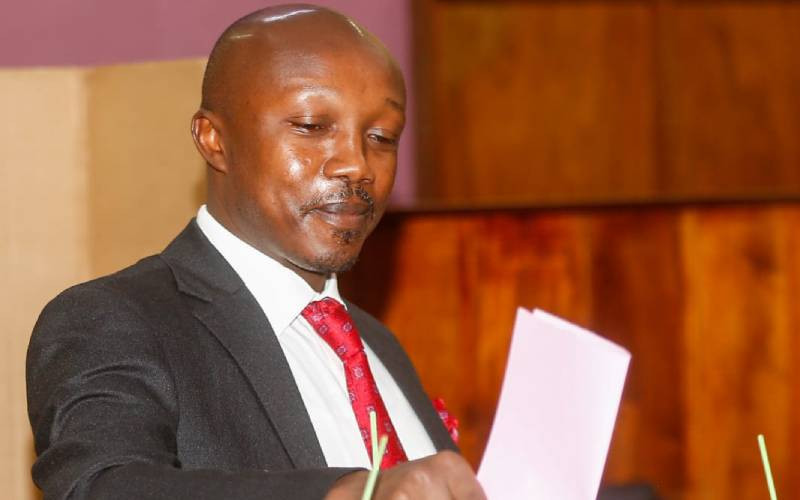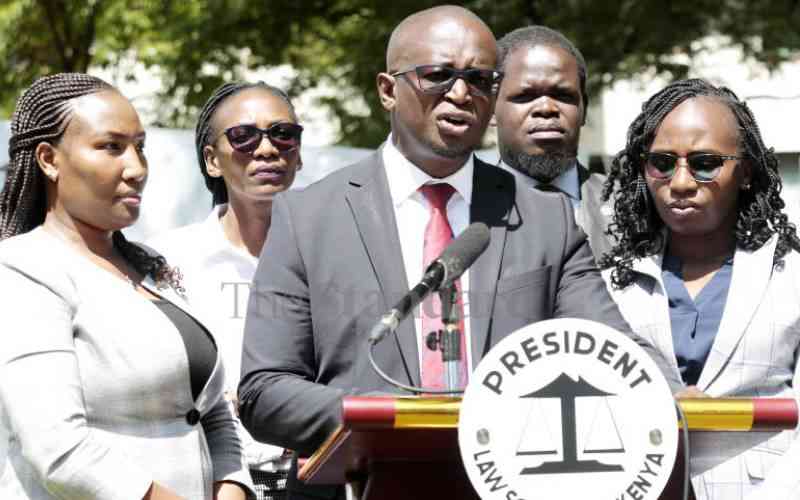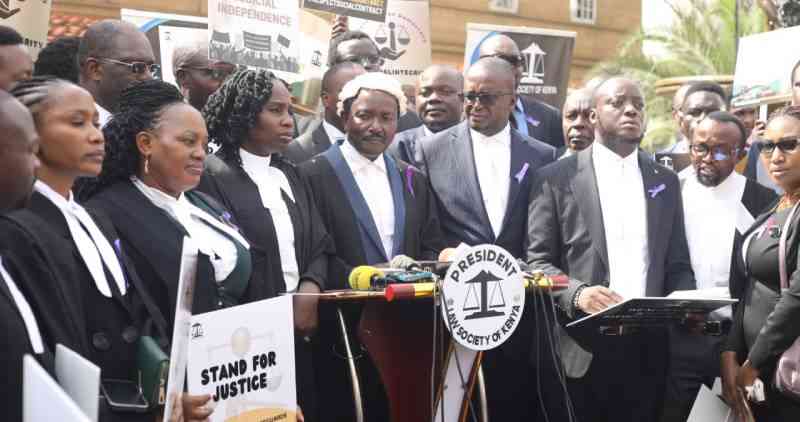The Law Society of Kenya (LSK) is engaged in a legal tussle with a section of its members over the construction of a Sh800 million International Arbitration Centre (IAC) in Nairobi.
This follows a decision taken during the LSK Annual General Meeting (AGM) in September last year to have the members raise the funds for the project.
It was decided members would pay Sh39,000 or Sh50,000, depending on one’s number of years in practice.
But the dispute arose when the LSK Council decided to peg the payment of the money to the issuance of the annual practising certificates for 2015. The deadline for the payment was February 1, 2015.
Four advocates filed a petition in Nairobi challenging the decision on behalf of 1,047 learned colleagues. Another 27 filed a similar petition in Mombasa on behalf of 1,018 others. The petitions were later consolidated and heard by Nairobi High Court judge Mumbi Ngugi.
The lawyers sought a declaration that the issuance of a practising certificate under the Advocates Act was not subject to any other benefit or obligation that may be proposed by LSK and which is not contemplated in the law.
They sought orders prohibiting LSK from making the payment a pre-condition to issuance of the certificate and also an order quashing the decision.
The also sued the Registrar of the High Court, being the custodian of the roll of advocates and the one mandated to issue practising certificates to advocates upon clearance by LSK.
The petitioners argue they were not heard or consulted before LSK pegged the payment of the money to issuance of practising certificates.
They claimed if the decision was implemented, their constitutional right to a fair hearing, fair administration of justice and economic rights would be infringed upon.
The petitioners in Mombasa sought to have all the resolutions at the AGM suspended pending the hearing and determination of that application and the main petition. The resolutions included putting up the centre and obtaining loans or overdrafts from financial institutions for the project.
They also sought orders requiring the LSK Council to issue them with the minutes of the meeting in which the decision was approved and the financial information on the project.
The general argument was that the resolution was punitive and that LSK was forcing them to contribute to the project without their full knowledge of it. They said this was a matter of national interest and their livelihood and that of the colleagues they represented were at stake.
Special account
If the decision was implemented, they argued, they were likely to be denied certificates and would not be able to practice this year.
Stay informed. Subscribe to our newsletter
They claimed their attempt to get information from LSK had been met with arrogance, muzzling and silencing of members who demanded openness and accountability.
LSK opposed the applications, contending that the application and the petitions did not point out clearly any constitutional rights violated and the petitioners had not shown how, when and in which manner their rights would be infringed upon.
The lawyers’ body submitted through Senior Counsel Ahmednasir Abdullahi that the AGM had been convened as provided by the law. Further, LSK said it was within its powers to issue practising certificates in accordance with the Advocates Act.
LSK said the decision was supported by an overwhelming majority at the AGM, hence their rights would also be infringed by the sought orders of the court.
LSK Secretary Apollo Mboya argued in his papers that the Council had not made any decision on the mode of enforcing the resolution of the AGM. He said 131 members had already paid.
The society claimed the petitioner was not interested in any negotiations and their interest was to see the project collapse.
The society said all the money collected for the project was banked in a special account to accumulate 30 per cent of the total cost to be able to acquire a loan. They could undertake not to withdraw the money and if the petitioners were successful, the funds would be refunded to those who demanded. Ahmednasir asked the court to refer the matter to arbitration.
The Registrar of the Judiciary said the petition against her was premature as no application had been made by the petitioner to her office and declined.
First, Justice Ngugi said she was satisfied that the petitioners had placed sufficient material before the court to enable it consider whether they were entitled to the reliefs sought and enable the respondents respond to the claim.
“I am satisfied on the material before me that the petitioners have established a threat to their livelihood which is encompassed in the rights protected under Article 43 of the Constitution,” she ruled.
Ngugi said the petitioners had also proved that if the injunction was not granted, the case would be rendered useless as LSK had already issued a demand for the money.
She pointed out the contradiction by LSK, that on one hand the funds would be kept in a special account and would be refunded to members who wished to have it back if the petition succeeded.
Total costs
On the other hand, LSK claimed the money would be kept to accumulate 30 per cent of the total costs to enable it get a banking facility.
The judge said the apprehension by the petitioners could not be said to lack legitimacy. She also ruled that the petitioners were entitled to information relating to the project even if LSK was not a State organ.
The court suspended all the resolutions made at the September 27, 2013 AGM of LSK, pending the determination of the petition. It restrained LSK from compelling the members to pay or pegging the payment to the issuance of practicing certificates.
The court also ordered LSK to release the information on the project to the petitioners within 14 days. The judge however clarified that the order did not prevent any member of LSK willing to pay the money for the Arbitration centre from doing so.
The judge further ordered the parties to proceed with arbitration of the dispute within 60 days.
 The Standard Group Plc is a
multi-media organization with investments in media platforms spanning newspaper
print operations, television, radio broadcasting, digital and online services. The
Standard Group is recognized as a leading multi-media house in Kenya with a key
influence in matters of national and international interest.
The Standard Group Plc is a
multi-media organization with investments in media platforms spanning newspaper
print operations, television, radio broadcasting, digital and online services. The
Standard Group is recognized as a leading multi-media house in Kenya with a key
influence in matters of national and international interest.
 The Standard Group Plc is a
multi-media organization with investments in media platforms spanning newspaper
print operations, television, radio broadcasting, digital and online services. The
Standard Group is recognized as a leading multi-media house in Kenya with a key
influence in matters of national and international interest.
The Standard Group Plc is a
multi-media organization with investments in media platforms spanning newspaper
print operations, television, radio broadcasting, digital and online services. The
Standard Group is recognized as a leading multi-media house in Kenya with a key
influence in matters of national and international interest.








